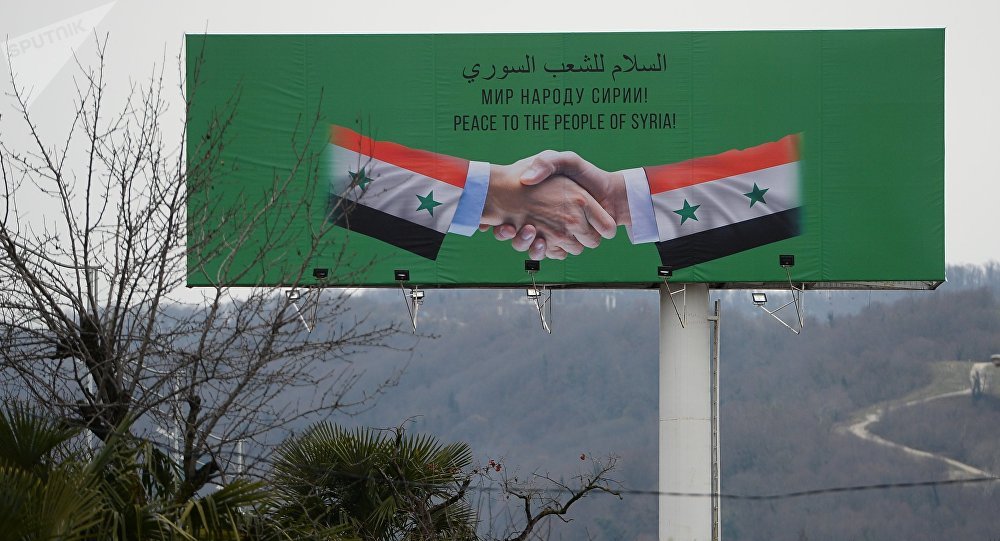More than 1500 Syrians gathered in Southern Russian city of Sochi for a three-day Congress to look for ways of rebuilding their country after years of civil war. Even though some western-backed opposition figures boycotted the event, the rest of the delegates stayed for negotiations, eventually reaching some important goals.

If you visit Sochi this week, from the moment you disembark from the plane you’d see banners of the All-Syrian National Dialogue Congress. The signs and banners are everywhere – at the airport, along main roads and in the former Olympic Media Center, which is hosting this high-level meeting.
The logo of the event contains the dove of peace spreading its wings in front of the Syrian Arab Republic flags. These symbols, reportedly became the apple of dischord for a group of Syrian opposition figures, who refused to sit down for talks under the country’s official flag.
These 83 delegates kept 1511 other the participants waiting for several hours on Tuesday before finally boarding a plane and flying to Turkey. Those who stayed — Syrian tribal and religious leaders, politicians, prominent opposition figures – were discussing the post-war future of their country.
The dialogue wasn’t easy from the very beginning, when people in the audience started shouting conflicting slogans, while Russian foreign minister Sergey Lavrov was addressing the Congress– a clear sign of deep fault lines in the Syrian society, torn by years of civil war.

After hours and hours of discussions, it became apparent that the congress reached one of its main goals: Syrian political groups that are in opposition to one another – finally started to communicate.“It became clear that Syrians talk to each other” – says Quadri Jamil, the leader of “Moscow” platform of Syrian opposition – “It was difficult, we had a heated debate, but it’s quite natural when people debate. There were some differences in opinions. The crucial issue was to kick off this dialogue and to find a starting point for discussing constitutional reforms.”
It wasn’t easy for Russia, Iran and Turkey to convince Syria’s warring sides to continue talks, especially after the US officials tried to talk some Syrian opposition groups out of participating in the Sochi congress. The United Nations supported the meeting, helping Russia, Iran and Turkey to set up the event.
UN special envoy for Syria crisis Stefan de Mistura thanked the delegates, saying that they “did work hard” in Sochi:

“I take note that those of you who are here agree, that a Constitution committee is to be formed, comprising the Government of the Syrian Arab Republic delegation along with a wide-represented opposition delegation for drafting a constitutional reform, and that your agreement is intended as a contribution – and I thank you again – to the political settlement under UN auspices in accordance with the Security Council resolution 2254.”Russian foreign minister Sergey Lavrov said that the Sochi plan will be passed on to the United Nations for further implementation. Lavrov is hoping that the document will help stimulate Geneva peace process:
“Stefan de Mistura has all the powers granted by the UN resolution 2254 and the Congress supported him in his actions, asking him to start active work on the Constitution.”
The UN resolution 2254 was adopted unanimously in 2015. It sets path for peace process in Syria. Even though members of the UN Security Council had different opinions on the role of President Assad in post-war Syria, they agreed that terrorism in Syria must end.
Since the beginning of the Syrian civil war in 2011, peace talks are being held in various locations around the world, among them Astana, Vienna, Geneva and Lausanne.
The Sochi All-Syrian Peace Congress was organized by Russia, Iran and Turkey with the support of the UN.